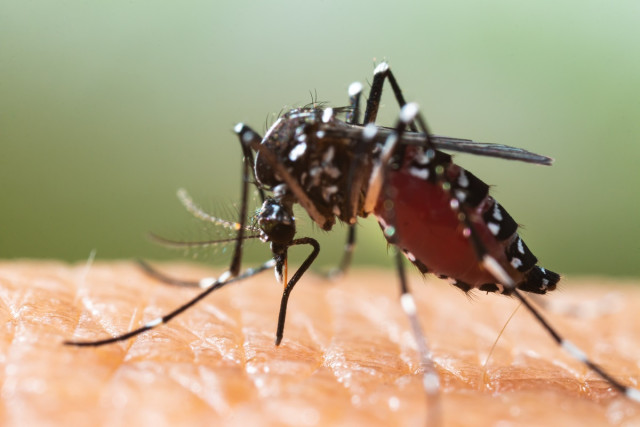
As summer approaches (on tiptoe), the Sciensano Institute of Public Health calls on Belgian citizens to keep their eyes open and notice the presence of tiger mosquitoes, potential vectors of diseases to humans, on our territory.
This initiative falls within the framework of the Exotic Mosquito Monitoring Project in Belgium, called “MEMO+”, which was launched in cooperation with the Antwerp Institute of Tropical Medicine (IMT).
“Citizen reports of tiger mosquitoes are very important,” insists Sciensano researcher Javiera Rebolledo Romero. “They have helped us establish the presence of tiger mosquitoes at more sites each year, and these sites are not always accessible for monitoring because they are often on private property in residential areas.”
However, it is important to map out control measures to delay its spread, says Sinsano.
In fact, the tiger mosquito (Aedes albopictus) isn't just a nuisance. “They also represent a health risk, because they can transmit viruses such as dengue, chikungunya or Zika from one person to another,” explains Israa Diblawi, an entomologist at the Integrated Technology Group (ITG).
People who believe they have spotted this small insect, recognizable by its black and white stripes, are invited to report its presence by submitting a photo to https://surveillancemoustiques.be. To facilitate the process, Sciensano has developed an app that also allows the use of a smartphone's GPS coordinates to indicate the monitoring location.
In recent years, tiger mosquitoes have gradually encroached on neighboring countries and southern Europe. “People going to these destinations by car or camper should be careful not to bring home adult tiger mosquitoes,” Sinsano still insists, noting the taste of these tiny pests for “hiking.”
In 2023, it was recorded at 25 different locations in Belgium – including 7 in motorway car parks and 18 in private parks – double the number compared to the 12 locations listed in 2022.
Belga






